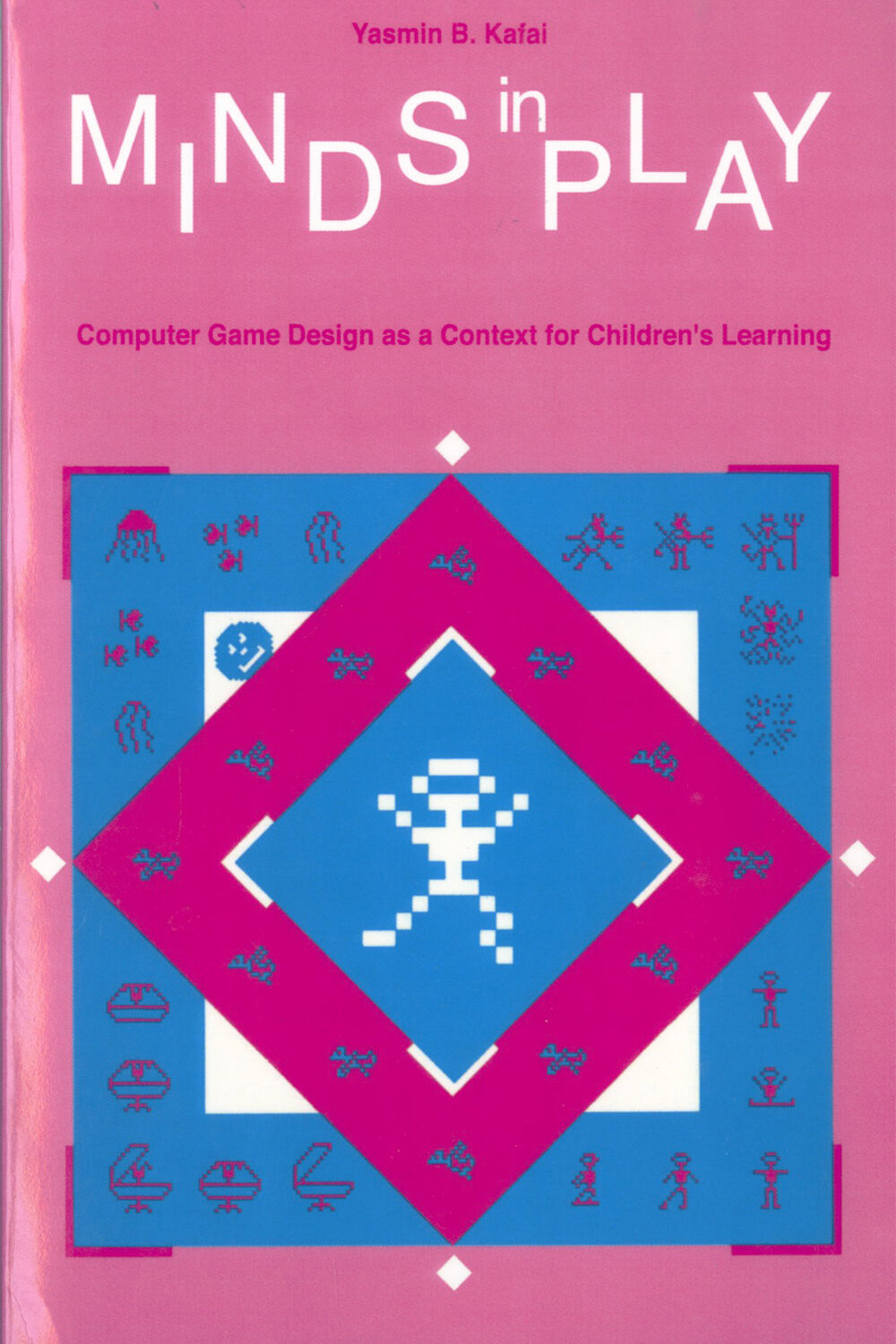Constructionism in Practice: Designing, Thinking, and Learning in a Digital World
Lawrence Erlbaum Associates 1995
Video games more than any other media have brought technology into children's homes and hearts. Educators, psychologists, and parents are struck by the quality of engagement that stands in stark contrast to children's usual interest in school homework and other activities. Whereas most research efforts have concentrated on discussing the effects of game playing, this book takes a different stance. It takes a close look at games as a context for learning by placing children in the roles of producers rather than consumers of games.
Kafai presents a constructionist vision of computer-based learning activities in schools. She follows a class of sixteen fourth-grade students from an inner-city public elementary school as they were programming games in Logo to teach fractions to third graders. The children transformed their classroom into a game design studio for six months, learning programming, writing stories and dialogues, constructing representations of fractions, creating package designs and advertisements, considering interface design issues, and devising teaching strategies. In this context, programming became a medium for children's personal and creative expression; in the design of their games children engaged their fantasies and built relationships with other pockets of reality that went beyond traditional school approaches.
The ideas and discussions presented in this book address educators, researchers, and software and curriculum designers interested in children's learning and thinking with educational technologies.
To celebrate the upcoming 20th anniversary of Minds In Play, I've reclaimed the copyright from the publisher. It was less dramatic than it sounds, I just asked for it. The book is now available for free in various electronic formats: epub kindle pdf Enjoy!
Endorsements
“A must for anyone who wants to have an opinion about children using computers. A mine of ideas for teachers in search of computer projects for their students or themselves. An enrichment of the idea of constructionism”
“Compelling. That’s the one-word summary of Kafai’s tour de force effort in documenting the impact of a constructionist, technology-enriched environment on the learning of young children. While there will always be those that take cheap shots, Kafai’s work in concert with that of Harel’s, establishes a systematic set of studies on the significant advantage that results from having children learn through designing and implementing computational artifacts. ”
“Instructional design has always been in the hands of teachers and textbook authors. In her Minds in Play, Yasmin Kafai shows how children designing instructional games can be a powerful vehicle for their own learning. ”
“The children of the 90s have strong personal experiences with interactive video games, and home edutainment multimedia software is becoming just as engaging as video games. We must encourage related adventures in schools, since we know the benefits of creating connections among children’s home and school experiences. By telling compelling stories on children’s development as makers of video games, Kafai is proposing constructionist adventures for learning, socializing, and cognitive development.”

